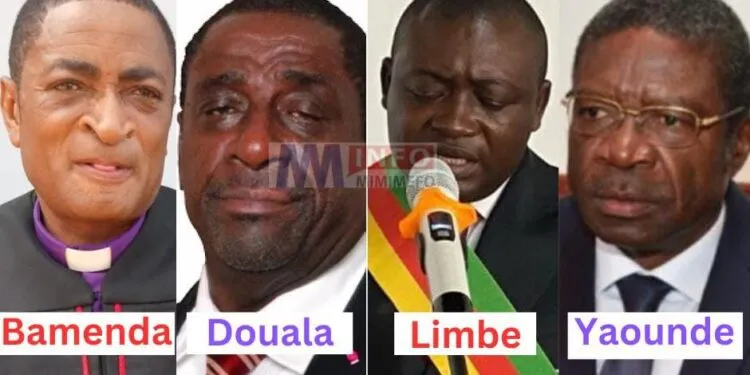City Mayors in Cameroon, all of them members of the ruling Cameroon People’s Democratic Movement (CPDM), have joined the familiar chorus calling on their 92-year-old party chairman, President Paul Biya, to stand again for election.
The call came during the fifth annual session of City Mayors held in Ebolowa, South Region, just weeks after they joined party members to echoe the same message during the CPDM’s 40th anniversary celebration on March 24.
The Mayors insisted that Biya has done “a lot” in their municipalities—although cities across Cameroon continue to rot under the weight of uncollected garbage, broken roads, water crisis and a worsening cost of living.
In their declaration, the mayors cited no concrete achievements of President Biya during 42 years in power to justify a fresh mandate for the ageing leader.
Prior to the October presidential elections, it has become routine for government officials to emerge from any gathering with a motion of support for Biya’s candidacy.
These motions are often led by Ministers or senior government officials, a pattern critics say is part of a calculated political campaign to manufacture consensus for Biya.
Douala City Mayor, Dr. Roger Mbassa Dine, chaired the gathering of mayors, which took place with Minister of Decentralisation and Local Development, Georges Elanga Obam, in attendance.
The meeting sought sustainable solutions for urban cleanliness—solutions that seem far-fetched given the state of cities under their watch.
Strengthening Decentralisation
The Mayors pledged to boost decentralisation, which the government has preached since 2019, following the Major National Dialogue that intended to solve the ongoing armed conflict in the country’s English-speaking regions.
To the city mayors, decentralising power and resources to local councils has brought administrators and citizens closer.
Yet, this rhetoric is starkly contrasted by the realities on the ground.
Garbage, Filth and Urban Disorder
Cities like Yaounde, Limbe, and Buea are reeling under the pressure of poor sanitation and urban decay.
In Yaounde, the capital city, mountains of garbage have become the norm, making daily life unbearable for residents.
The situation was so severe that Minister of Housing and Urban Development, Celestine Ketcha Courtès, ordered the city mayor to clean up the capital within days.
Also, Limbe, once among Cameroon’s cleanest cities, is now plagued by piles of waste and dwindling hygiene.
But instead of addressing these pressing issues, the mayors ignored them and focused on endorsing Biya’s candidacy.
Corpses Rot in Bamenda’s Streets
In Bamenda, the North West Regional capital, the situation is even more dire with the ongoing armed conflict.
Corpses dumped in public spaces by both separatists and security forces are left to decay in open air, posing serious health risks.
Despite this alarming situation, Bamenda City Mayor Paul Achobang has remained silent.
Rather than focusing on sanitation and public health, he joined his peers in calling for Biya to run again.
Residents of Bamenda say this isn’t new. Since the conflict began, the presence of rotting bodies has become a frequent in the city—an issue authorities seem unwilling to address.
The mayors’ decision is now circulating in a declaration online. All 14 of them are CPDM loyalists.
Decades ago, Cameroon established City Councils, but government delegates led them in the past.
After the Major National Dialogue in 2019, the government scrapped government delegates and replaced them with elected city mayors.
Yet many Cameroonians say what changed in title has not changed in substance. For them, the current crop of city mayors appear more concerned with political allegiance than solving the real problems that affect millions every day.



